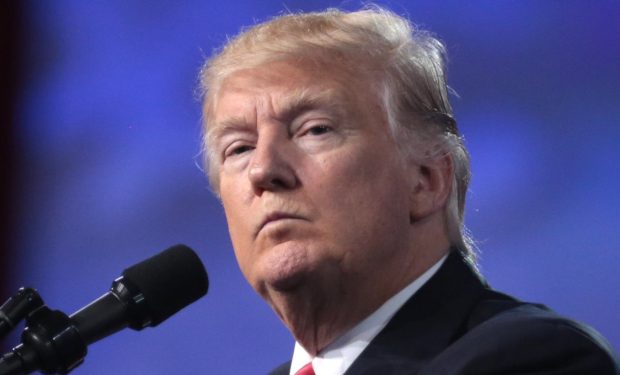The decision not to allow former Trump administration Chief of Staff Mark Meadows — accused of two felonies in Fulton County, Georgia — to have his case removed to federal court did not directly impact his main co-defendant in the case, former President Donald Trump. But the 49-page rejection of his appeal delivered by Judge William Pryor of the U.S. Court of Appeals for the Eleventh Circuit did contain bad legal news for Trump, as University of Texas Law Professor Lee Kovarsky sees it.
Part of a 3-judge panel issuing the decision, Judge Pryor, a deeply committed conservative, gave two chief reasons why Meadows’s claims didn’t qualify him for removal. In one, the ruling simply found that the sought-after removal wasn’t applicable to “former” officials. But it is the second piece that Kovarsky believes impacts Trump more acutely, and that is the ruling that Meadows’s actions on the election front were deemed not to be part of his official duties.
(2) This is particularly devastating because the ruling against him on whether his activity was under color of law FOR THE PURPOSES OF REMOVAL will do double duty as an opinion on whether he was engaged in official conduct FOR THE PURPOSES OF HIS IMMUNITY DEFENSES.
— Lee Kovarsky (@lee_kovarsky) December 18, 2023
3/
Calling the ruling an “unmistakable signal” to fellow conservatives on the Supreme Court that “immunity defenses are frivolous,” Kovarsky sees a parallel between Meadows’s case and Trump’s request for immunity.
(6) The holding about whether the agreement at the core of the charge was within the scope of M's and T's official duties is exactly what I've been predicting from the start – maybe even a touch more aggressive than I'd expected.
— Lee Kovarsky (@lee_kovarsky) December 18, 2023
/e
“Meadows cannot point to any authority for influencing state officials with allegations of election fraud,” Pryor wrote. “At bottom, whatever the chief of staff’s role with respect to state election administration, that role does not include altering valid election results in favor of a particular candidate.”
It’s plausible that “chief of staff’s role” in the quote above could be replaced by “chief executive’s role” in a decision by a Supreme Court considering Trump’s claims of immunity — e.g., “whatever the chief executive’s role with respect to state election administration, that role does not include altering valid election results in favor of a particular candidate.”
Kovarsky concludes, especially in light of the political leanings of Judge Pryor, that it’s “really just a worst case scenario for Trump.”
It offers an energetic rebuttal to a "Take Care Clause" argument that seemed to gain traction in some R-aligned circles. It's really just a worst case scenario for Trump, not to mention Meadows.
— Lee Kovarsky (@lee_kovarsky) December 18, 2023
10/
